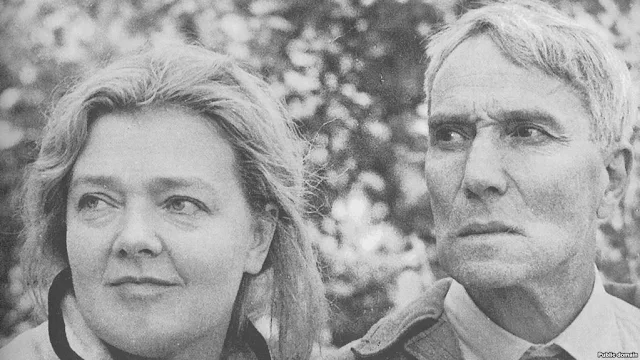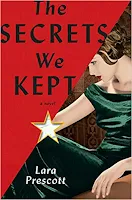“The Secrets We Kept” by Lara Prescott – The Forbidden Novel
Lara Prescott Tells a Story of Illegal Literature
Lara Prescott seems to have an underappreciated knack for bringing to life the lesser-known historical curiosities, at least if her first published novel, The Secrets We Kept, is anything to go by.
In it, we are presented with a retelling of how the CIA smuggled Boris Pasternak's Doctor Zhivago out of the USSR to distribute it abroad.
More specifically, we follow the two secretaries tasked with the job, as well as a love story for the centuries revolving around Pasternak and his muse Olga Ivinskaya.
For as long as people have firmly held the right of expression as an essential component to human life, censorship has always been there to rear its ugly jaws at it. It has taken on many forms and levels of gravity throughout human history, ranging from the essentially inane to downright executions.
The Soviet Union had a rightfully earned reputation as being a ruthless censor, and it came to light internationally in a particular case, the one involving Doctor Zhivago by Boris Pasternak. In her novel The Secrets We Kept, Lara Prescott takes us back to this strange and unusual time in the history of the Cold War.
For those who aren't aware of it, Boris Pasternak's novel was banned from publication in the USSR due to its criticisms of the country, and most notably the October Revoluion. Lara Prescott drops us right into the 1950s, telling us two separate narratives. The first one follows Sally and Irina, two secretaries employed by the CIA to help smuggle the book out of the Soviet Union. Their mission largely consists of prying information out of loose-lipped men and ensuring important classified documents find their way to the right places.
The second narrative takes us far away into the East to follow the generally uneasy life of Pasternak himself. More precisely, the centre stage is occupied by a grand love story for the ages, between Pasternak and the poet Olga Ivinskaya, his muse and inspiration for the heroine in Doctor Zhivago. Though the State would consistently hound and persecute them, together they managed to endure far beyond anything most people could imagine.
Of Spies and Lovers
On the surface, the stakes for this story aren't exactly the highest we've ever seen: to smuggle out a novel as part of a plan to help spread democratic ideals. Even if it does work, the chances of it having any sort of world-altering consequences are quite slim. Nevertheless, I have to commend Prescott on her ability to extract every ounce of intrigue and emotion out of this story, and in the end to me it largely felt like a historical spy novel.
Probably due to my predisposition towards the genre, I was most captivated by the narrative following Sally and Irina due to the specificity with which Prescott described their espionage ventures. We are made to feel the gravity and importance of every single mission they go on, how they are embarking on the journeys which will define their lives for evermore.
With this being a novel, I am certain the author may have exaggerated a few things or taken some liberties here and there, but you'll be glad to know it's nothing you can't look past. I believe if you cannot tell the difference between fact and fiction in a historical novel, it has undoubtedly accomplished one of its goals.
 |
Olga Ivinskaya and Boris Pasternak 1951. |
Once again, I am not entirely certain as to how much of the relationship between them has been taken from historical documentation, but considering how well-chronicled it is, I imagine Prescott doesn't colour outside the lines, so to speak.
The Cold War of Books
As much time as Prescott dedicates to advancing the plot, her novel does remain a historical one and thus, we are privy to quite a few segments where she establishes the period and the context as well as she possibly can.
From the cramped typing pool where the women work for the Agency to Pasternak's country estate, Prescott knows how to use descriptive language to bring her locales to life, taking advantage of as many of the reader's senses as she can. This is probably one of the book's greatest strengths, as it was the first element which hooked me in particular during the opening scenes.
The author also takes a good amount of time to delve into the Cold War, or at least, the parts of it which affected this story. Whether you are a master on the subject or know nothing about it, I believe her excursion through the topic will still be of interest, whether as a mere well-written refresher or an educative essay.
What I really enjoyed is how profoundly she went into describing the effects of the Cold War on the regular people, how it shaped their lives and opportunities on both sides of the equation. Thankfully, she never delves too deeply into this subject or for long periods of time, keeping the historically-educative moments spaced out nicely.
In the end though, I felt the historical aspects eventually gave way to the fast-paced narratives, becoming increasingly focused on Sally and Irina's efforts to do what seems to them nigh-impossible. I understand the history buffs among you may not be entirely receptive to the idea of placing the fictional narrative on a slightly higher pedestal than historical accuracy, but I would argue it is precisely what a novel is meant to do.
The Final Verdict
The Secrets We Keep by Lara Prescott is a captivating historical espionage thriller and love story all in one, based on the real tumultuous history of Doctor Zhivago and its author, Boris Pasternak. I highly recommend this to all those of you who enjoy thrillers revolving around the Cold War and forbidden literature.
 |
| The book of Olga Ivinskaya about Boris Pasternak. |








Comments
Post a Comment